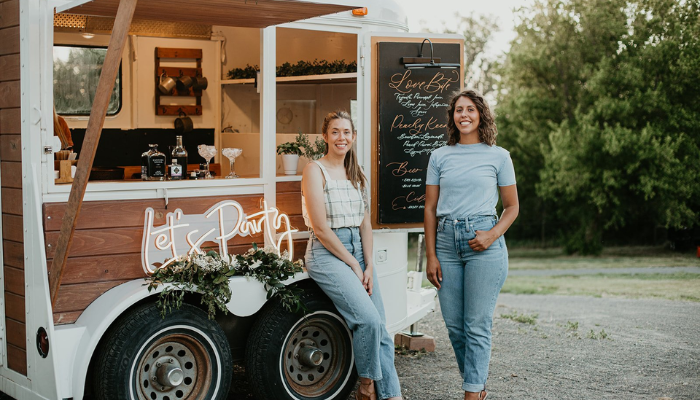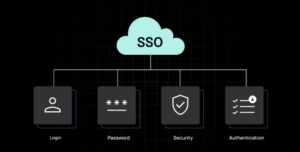
The mobile bar business is rapidly becoming one of the most profitable and exciting ventures in the events and hospitality industry. With the flexibility to cater to weddings, corporate events, private parties, festivals, and pop-up experiences, mobile bars are reinventing how people enjoy their favorite drinks. Entrepreneurs are drawn to this trend because it offers creative freedom, scalable potential, and relatively low startup costs compared to traditional brick-and-mortar bars.
If you’ve ever dreamed of combining your love for craft cocktails, customer service, and event planning into a rewarding business, the mobile bar business might be your perfect opportunity. In this guide, we’ll dive deep into every essential step you need to know to start and grow your own mobile bar. From licensing and branding to marketing and profitability, you’ll find expert insights, creative tips, and answers to the most commonly asked questions.
Understanding the Mobile Bar Business Model
The mobile bar business revolves around the idea of delivering a premium beverage service directly to clients at various locations. Instead of patrons visiting a bar, the bar comes to them—offering a customized and often thematic experience for events like weddings, festivals, and corporate parties. It’s a low-overhead, high-demand business model that thrives on mobility, creativity, and exceptional service.
What makes the mobile bar business so attractive is its versatility. Mobile bars can be trailers, vans, carts, or even bicycles outfitted with taps, coolers, and mixology equipment. This flexibility allows you to adapt your business to a specific niche—be it luxury weddings or rustic backyard events. Unlike traditional bars, you’re not tied to a location, giving you the freedom to take your services wherever the demand is.
Licensing and Legal Requirements
Before serving your first drink, it’s crucial to ensure your mobile bar business complies with local and state laws. Licensing requirements vary depending on your location, but the most common include a liquor license, business license, and event permits. Some states may also require liability insurance and food handler certifications, especially if you’re serving non-alcoholic beverages or snacks.
Failing to comply with these regulations can lead to hefty fines or business closure, so do your research or consult a legal professional familiar with alcohol service laws. Additionally, mobile bar owners often partner with licensed bartenders or offer BYOB (Bring Your Own Booze) models where the client supplies the alcohol, and the mobile bar provides service, mixers, and presentation.
Designing and Branding Your Mobile Bar
Design plays a pivotal role in attracting clients to your mobile bar. Whether you’re converting a vintage horse trailer or a sleek Airstream, your bar’s visual appeal sets the tone for the entire experience. Make sure your design is Instagram-worthy—clients often choose vendors based on how their setup will look in photos. A unique, stylish mobile bar can instantly become a focal point at any event.
Branding goes beyond just the bar’s appearance. Create a strong brand identity with a compelling name, logo, tagline, and consistent color scheme. Your website, social media, menus, and business cards should all reflect your brand’s personality. The stronger your brand, the more memorable your mobile bar business becomes—boosting your chances of repeat bookings and referrals.
Marketing Your Mobile Bar Business
A well-crafted marketing strategy is essential for growing your mobile bar business. Start by building a professional website optimized for local SEO. Use keywords like “mobile bar for weddings in [your city]” or “hire a mobile bar in [your area]” to help potential clients find your services online. Include an eye-catching portfolio, client testimonials, package pricing, and a clear call-to-action on every page.
Social media is your best friend in this industry. Platforms like Instagram, Facebook, and TikTok are ideal for showcasing event highlights, drink recipes, and behind-the-scenes footage. Collaborate with photographers, wedding planners, and event venues to increase exposure. You can also join local vendor directories, attend bridal expos, and use targeted ads to reach your ideal audience. Email marketing and referral programs further help keep your brand top of mind.
Pricing, Packages, and Profitability
Setting the right prices is key to sustaining and scaling your mobile bar business. Begin by calculating your startup and operating costs, including bar build-out, licensing, equipment, insurance, staffing, and transportation. From there, structure your packages to reflect your value, such as basic drink service, premium mixology, themed events, or full-service experiences with glassware and décor.
Many mobile bar businesses charge based on event duration, guest count, and service style. Popular pricing models include flat fees, per-person rates, or custom quotes. Always factor in time for setup, breakdown, and travel. As your reputation grows, so can your prices. By offering upsells like signature cocktails, custom drink menus, and bar décor rentals, you can significantly increase your revenue per event and boost profitability.
Conclusion
Starting a mobile bar business is more than just serving drinks—it’s about delivering unforgettable experiences wherever your clients need them. With low overhead costs, high creative potential, and growing demand across the event industry, mobile bars offer an exciting path for entrepreneurs ready to shake up their careers. From understanding the legal side to building a stunning brand and marketing like a pro, every step you take brings you closer to owning a thriving business on wheels.
So whether you’re a mixology enthusiast or a business-minded visionary, now is the perfect time to tap into the booming world of mobile bar services. Cheers to new beginnings and mobile success!
Frequently Asked Questions (FAQs)
1. How much does it cost to start a mobile bar business?
Startup costs typically range from $10,000 to $50,000 depending on your location, vehicle type, equipment, and branding.
2. Do I need a liquor license for a mobile bar?
Yes, most regions require a liquor license. However, you can also offer a BYOB service where clients supply the alcohol.
3. What types of events hire mobile bars?
Weddings, corporate events, private parties, festivals, baby showers, and even product launches often feature mobile bars.
4. Can I run a mobile bar business part-time?
Absolutely! Many entrepreneurs start part-time on weekends and grow into full-time operations as demand increases.
5. What should I include in my mobile bar packages?
Common inclusions are bartenders, mixers, garnishes, glassware, menu design, and optional décor or signature drinks.
6. How do I find clients for my mobile bar business?
Use a combination of social media marketing, SEO-optimized websites, event expos, vendor networks, and referrals.
7. Is insurance required for mobile bar businesses?
Yes, liability insurance is highly recommended and sometimes required for legal operation at events and venues.
8. Can I serve non-alcoholic drinks in my mobile bar?
Of course! Non-alcoholic bars (mocktail bars) are trending and perfect for corporate functions and family events.
9. How long does it take to launch a mobile bar business?
With planning and preparation, you can launch within 3–6 months depending on licensing and vehicle conversion time.
10. What’s the earning potential for a mobile bar business?
Successful mobile bar owners can earn between $75,000 to $150,000+ annually, depending on their market and event volume.







